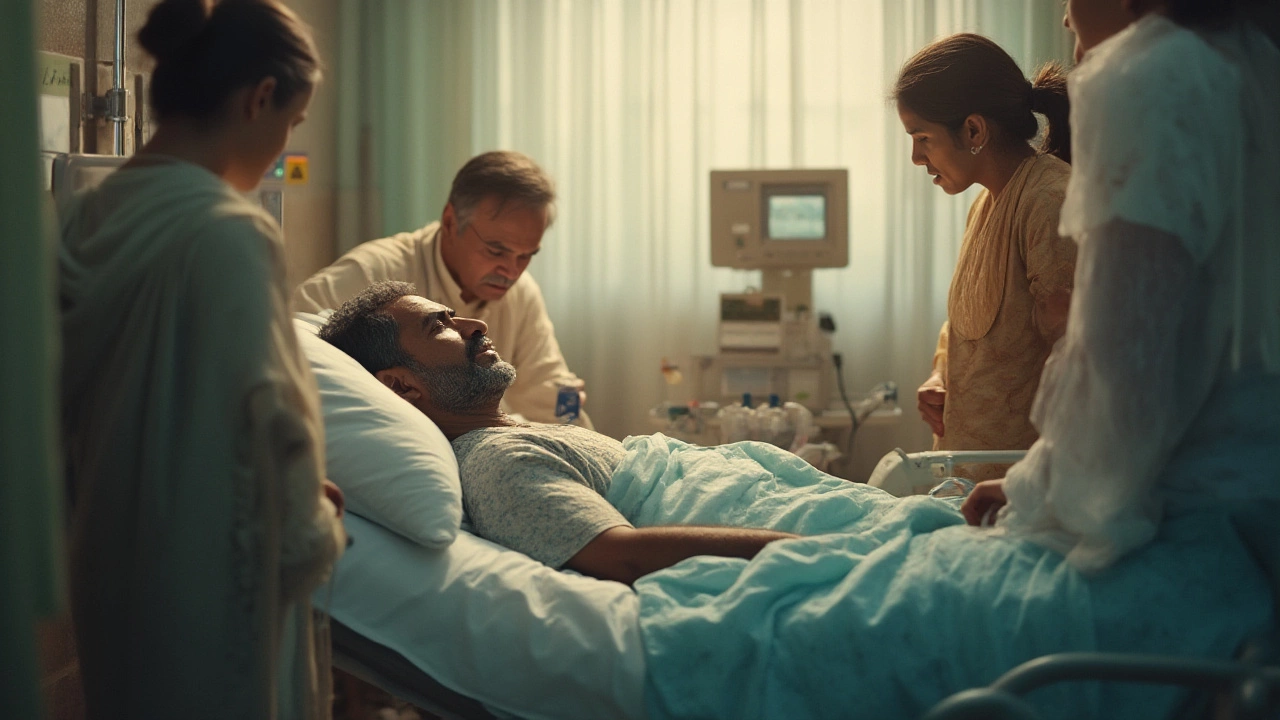Surgery Complications
When dealing with Surgery complications, unexpected problems that arise during or after an operation. Also known as post‑operative issues, it can affect any type of procedure, from a simple skin excision to a complex heart transplant. Understanding the common causes—like infection, blood loss, or organ stress—helps you spot trouble early and ask the right questions. Surgery complications are not just medical jargon; they’re real hurdles that patients and doctors navigate together.
One of the most talked‑about subsets is Cardiac surgery complications, issues that arise from heart‑related procedures such as transplants, the Norwood operation, or LVAD implantation. These procedures are already high‑stakes, so problems like arrhythmias, bleeding, or graft rejection become critical. A recent cardiology review highlighted that early detection of rhythm disturbances can cut mortality by 15 %. This is why many heart centers now use continuous telemetry and rapid‑response teams right after the surgery.
On the orthopedic side, Orthopedic surgery complications, post‑operative problems after bone or joint procedures like knee replacements often involve infection, prosthetic loosening, or limited mobility. A 2024 knee‑replacement guide noted that patients who start gentle physiotherapy within 24‑48 hours see a 20 % drop in stiffness and a faster return to daily activities. Knowing the warning signs—persistent swelling, fever, or unusual pain—lets you intervene before a minor issue turns major.
Fertility treatments bring their own set of challenges. Fertility treatment complications, adverse effects linked to IVF, embryo transfer, and related procedures include ovarian hyperstimulation syndrome (OHSS), multiple pregnancies, and emotional stress. Experts now advise a “single‑embryo transfer” strategy for most patients because it halves the chance of twins without compromising success rates. Keeping hormone levels in check and having a solid support system can make the whole IVF journey smoother.
When surgery moves across borders, the landscape changes. Medical tourism safety, the quality and risk factors of undergoing surgery abroad hinges on hospital accreditation, surgeon credentials, and post‑operative follow‑up plans. A 2023 survey of Indian patients traveling for orthopedic work showed that facilities with JCI accreditation reported 30 % fewer infection rates than non‑accredited centers. Still, you’ll need a clear plan for post‑surgery care once you return home, otherwise the savings could be wiped out by complications.
All these pieces fit together: surgery complications encompass infection risk, they require vigilant postoperative monitoring, and external factors like medical tourism influence complication rates. Below you’ll find a curated set of articles that dive deeper into each of these areas—heart surgery challenges, knee‑replacement timing, IVF risks, caretaker needs after open‑heart procedures, and more. Whether you’re preparing for an operation, supporting a loved one, or simply curious about the hidden pitfalls, the guides ahead give you practical, up‑to‑date insights you can act on today.
Worst Surgeries to Recover From: Why Recovery Can Be Brutal and What to Expect
Ever wondered which surgeries are the hardest to bounce back from? Get real talk on brutal recoveries, what makes them challenging, and smart tips for healing.
